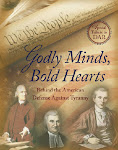
Saint Constantine (272AD-337AD) was Roman emperor from 306 until his death in 337. His victory at the Milvian Bridge ranks by scholars as one of the most decisive moments in world history.
Following the collapse of the Tetrarchy around 309, Constantine strengthened his claim in Britain, Gaul, the Germanic provinces, and Spain. Believing himself to be the rightful emperor of the Western Roman Empire, he prepared his army for an invasion of Italy in 312. Maxentius, who occupied Rome, tried to advance his own claim to the title and was able to draw upon the resources of Italy, Corsica, Sardinia, Sicily, and the African provinces.
After defeating Maxentian armies at Turin and Verona, Constantine moved on and conquered northern Italy. Compassionate to the citizens, he found willing supporters among them--many of whom joined his ever-increasing army.
Continuing in battle toward Rome, Constantine expected that Maxentius would stay within the city walls and force him to lay siege since that was the strategy he (Maxentius) used against the forces of Severus (307) and Galerius (308).
Yet this time Maxentius instead advanced his army to the Tiber River near the Milvian Bridge outside of Rome. On the night before the battle at Milvian, Constantine had a vision which instructed him to fight under the protection of the Christian God. In this vision a cross appeared in the sky and he heard in Latin, "In this sign, you will conquer."
Lactantius (240AD-320AD), an early Christian author, wrote of Constantine's vision:
Constantine was directed in a dream to cause the heavenly sign to be delineated on the shields of his soldiers, and so to proceed to battle. He did as he had been commanded, and he marked on their shields the letter X, with a perpendicular line drawn through it and turned round thus at the top (P), being the cipher of CHRISTOS. Having this sign, his troops stood to arms.
Eusebius of Caesarea (263AD-339AD), the Father of Church History and Bishop of Caesarea Palaestina, wrote of Constantine's vision:
Being convinced...that he needed some more powerful aid than his military forces could afford him, on account of the wicked and magical enchantments which were so diligently practiced by the tyrant, he sought Divine assistance, deeming the possession of arms and a numerous soldiery of secondary importance, but believing the co-operating power of Deity invincible and not to be shaken. He considered, therefore, on what God he might rely for protection and assistance ....[W]hile he was...praying with fervent entreaty, a most marvelous sign appeared to him from heaven...
He said that about noon, when the day was already beginning to decline, he saw with his own eyes the trophy of a cross of light in the heavens, above the sun, and bearing the inscription, CONQUER BY THIS. At this sight he himself was struck with amazement, and his whole army also, which followed him on this expedition, and witnessed the miracle. ... And while he continued to ponder and reason on its meaning, night suddenly came on; then in his sleep the Christ of God appeared to him with the same sign which he had seen in the heavens, and commanded him to make a likeness of that sign which he had seen in the heavens, and to use it as a safeguard in all engagements with his enemies.
At dawn of day he arose, and communicated the marvel to his friends: and then, calling together the workers in gold and precious stones, he sat in the midst of them, and described to them the figure of the sign he had seen, bidding them represent it in gold and precious stones. And this representation I myself have had an opportunity of seeing.
Now it was made in the following manner. A long spear, overlaid with gold, formed the figure of the cross by means of a transverse bar laid over it. On the top of the whole was fixed a wreath of gold and precious stones; and within this, the symbol of the Saviour’s name, two letters indicating the name of Christ by means of its initial characters, the letter P being intersected by X in its centre: and these letters the emperor was in the habit of wearing on his helmet at a later period. From the cross-bar of the spear was suspended a cloth, a royal piece, covered with a profuse embroidery of most brilliant precious stones; and which, being also richly interlaced with gold, presented an indescribable degree of beauty to the beholder. This banner was of a square form, and the upright staff, whose lower section was of great length, bore a golden half-length portrait of the pious emperor and his children on its upper part, beneath the trophy of the cross, and immediately above the embroidered banner.
The emperor constantly made use of this sign of salvation as a safeguard against every adverse and hostile power, and commanded that others similar to it should be carried at the head of all his armies.
The Battle
After crossing over the Milvian Bridge, Maxentius ordered it destroyed so that it could not be used by Constantine. He then had a pontoon bridge built for his men. When Constantine's forces arrived on the battlefield with his troops, they attacked and successfully pushed Maxentius' men toward the river.
Maxentius started to retreat toward Rome. As his army withdrew, it clogged and collapsed the pontoon bridge. Those trapped on the river's bank were either captured or slaughtered by Constantine's men. As the battle came to a close. Maxentius' body was found in the river where he had drowned in an attempt to swim across.
Aftermath
With his rival dead, Constantine was free to consolidate his hold over the Western Roman Empire. His reign expanded to include the entire Roman Empire after defeating Licinius during the civil war of 324.
As the first Christian Roman emperor, he stopped persecutions demanded by his predecessor, Diocletian, and issued the Edict of Milan in 313 to proclaim religious toleration throughout the empire. He restored to Christians the property stolen from them during persecutions of predecessors, and he preferred Christians in government jobs.
Constantine even took a direct interest in matters of doctrine, setting a precedent for future emperors, and called the first Ecumenical Council of the Catholic Church (at Nicaea).
His impact on the success of the Christian church is undeniable, and his support of Christianity is one of the most momentous decisions ever made by a European ruler.
Lead me, Yahweh, in your righteousness because of my enemies. Make your way straight before my face.
Psalm 5:8





















































































No comments:
Post a Comment